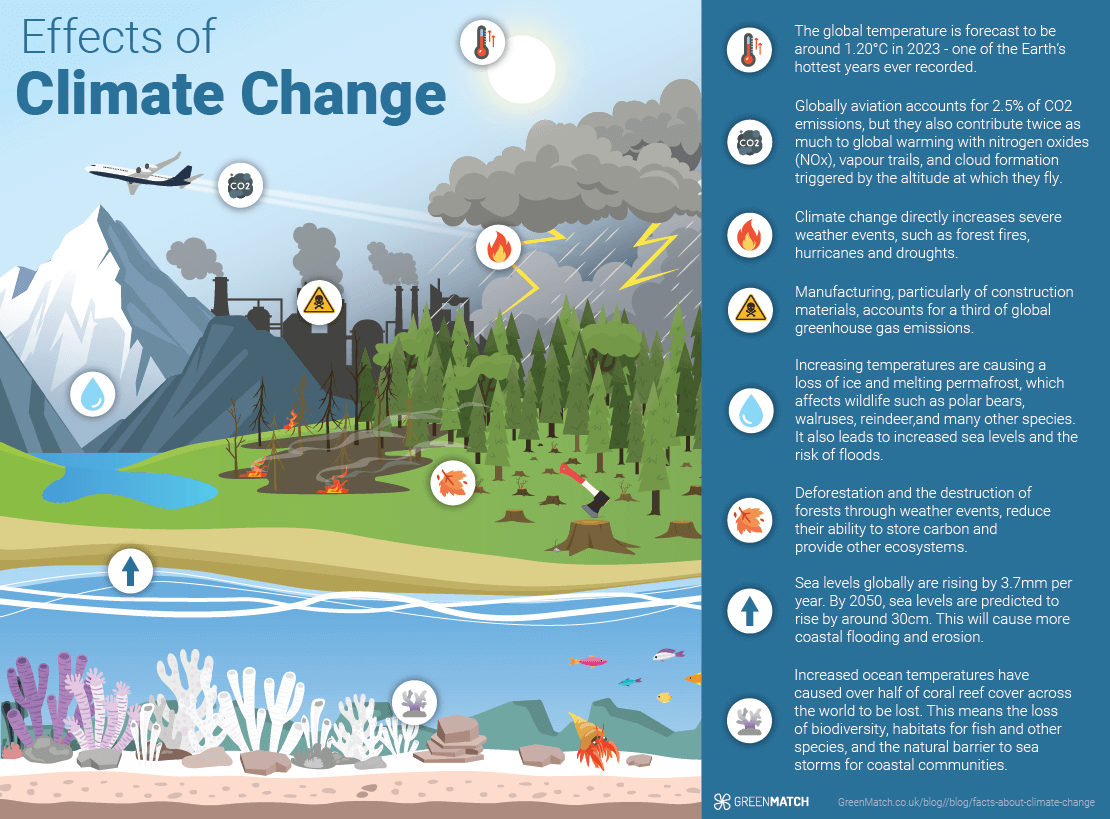https://www.facebook.com/ads/preferences/edit/
/nhttps://advertise.bingads.microsoft.com/en-us/resources/policies/personalized-ads
/nhttps://www.linkedin.com/psettings/advertising
/nhttp://www.youronlinechoices.com/uk/your-ad-choices for more information on common third party cookies used for targeted marketing.</p>\n","modalButton":"Save and close","overlayTitle":"We use cookies to give you the best browsing experience.","overlayText":"<p>We and our partners use cookies on our website to improve your browsing experience, personalize content and ads, provide social media features, and analyze our traffic. If you continue interacting we assume that you are happy to receive all cookies on this website. However, you can change your <span class=\"cookie-toggler\">cookie settings</span> at any time at the bottom of this page. Read more about our <a href=https://www.greenmatch.co.uk/"/cookie-policy/">cookie policy</a>.</p>\n","overlayButton":"Save and close"},"whyUse":{"title":"Why Use GreenMatch?"},"productGuide":{"back":"Back"},"page404":{"title":"Sorry, We Can't Find That Page","topText":"<div class=\"text shadow-container col-12 col-lg-10 col-xl-8 mb-4 p-3\">\n<p>…something went wrong or you might have followed an old link to a page that doesn’t exist anymore.</p>\n<p class=\"mt-3\">Were you looking for any of these by any chance?</p>\n<ul class=\"links\">\n<li><a href=https://www.greenmatch.co.uk/"https://www.greenmatch.co.uk/solar-energy/solar-panels/">Solar Panels</a></li>\n<li><a href=https://www.greenmatch.co.uk/"https://www.greenmatch.co.uk/heat-pumps/">Heat Pumps</a></li>\n<li><a href=https://www.greenmatch.co.uk/"https://www.greenmatch.co.uk/boilers/">Boilers/n
climate change</a>. Unrelenting and vast in its impact, climate change has far-reaching effects on our planet’s ecosystems, wildlife, and even our own existence.</p>\n\n\n\n<p>Climate change has been proven to be a direct cause of human actions, like burning fossil fuels and destroying natural environments. According to NASA, the experts on our planet:</p>\n\n\n\n<blockquote class=\"wp-block-quote\"><p>It is undeniable that human activities have produced the atmospheric gases that have trapped more of the Sun’s energy in the Earth system. This extra energy has warmed the atmosphere, ocean, and land, and widespread and rapid changes in the atmosphere, ocean, cryosphere, and biosphere have occurred.</p><cite><a href=https://www.greenmatch.co.uk/"https://climate.nasa.gov/evidence//" target=\"_blank\" rel=\"noreferrer noopener nofollow\">NASA</a></cite></blockquote>\n\n\n\n<p>To help us make sense of climate change, what it means and how it’s changing our world, we’ve compiled a list of facts and data directly from the experts. In this article, we will set out a clear and comprehensive look at the realities of our changing climate.</p>\n</div></div>\n\n\n\n<figure class=\"wp-block-image size-full\"><img loading=\"lazy\" width=\"1110\" height=\"819\" src=https://www.greenmatch.co.uk/"https://cdn.greenmatch.co.uk/cdn-cgi/image/format=auto/2/2023/06/MAY23_5_01-Climate-change-facts_right_side_wider_2.png/" alt=\"52 Facts About Climate Change\" class=\"wp-image-70977\" srcset=\"https://cdn.greenmatch.co.uk/cdn-cgi/image/format=auto/2/2023/06/MAY23_5_01-Climate-change-facts_right_side_wider_2.png 1110w, https://cdn.greenmatch.co.uk/cdn-cgi/image/format=auto/2/2023/06/MAY23_5_01-Climate-change-facts_right_side_wider_2-300x221.png 300w, https://cdn.greenmatch.co.uk/cdn-cgi/image/format=auto/2/2023/06/MAY23_5_01-Climate-change-facts_right_side_wider_2-1024x756.png 1024w, https://cdn.greenmatch.co.uk/cdn-cgi/image/format=auto/2/2023/06/MAY23_5_01-Climate-change-facts_right_side_wider_2-768x567.png 768w\" sizes=\"(max-width: 1110px) 100vw, 1110px\" /></figure>\n\n\n\n<div class=\"wp-container-2 wp-block-group\"><div class=\"wp-block-group__inner-container\">\n<h2>What Is Climate Change?</h2>\n\n\n\n<p>Climate change is a direct effect of global warming. Global warming is the effect that <a href=https://www.greenmatch.co.uk/"https://www.greenmatch.co.uk/blog/how-to-be-more-eco-friendly/">human activities</a> have on our planet’s atmosphere, which causes temperatures to rise. We do this by creating excessive <a href=https://www.greenmatch.co.uk/"https://www.greenmatch.co.uk/blog/2019/02/households-fight-greenhouse-gas-emissions/">greenhouse gases</a> (such as carbon dioxide) which get trapped in the Earth’s atmosphere.<br><br>As the Earth heats up, changes to our weather and our known environments start to occur and devastating events take place – such as melting ice caps, rising sea levels and extreme weather events, like hurricanes and wildfires.<br><br>Collectively these changes are known as ‘climate change’ and since the dawn of the <a href=https://www.greenmatch.co.uk/"https://www.greenmatch.co.uk/blog/uk-co2-emissions/">Industrial Revolution</a>, the impact of these events has been increasing, with more frequent and devastating effects being seen in recent years. </p>\n\n\n\n<p>Although some people do not believe that climate change is caused by human activity, research groups across the world are concluding that this is in fact true, without a doubt. According to the IPCC (The Intergovernmental Panel on Climate Change):</p>\n\n\n\n<blockquote class=\"wp-block-quote\"><p>Human-induced climate change, including more frequent and intense extreme events, has caused widespread adverse impacts and related losses and damages to nature and people, <strong>beyond</strong> natural climate variability. […] The rise in weather and climate extremes has led to some irreversible impacts as natural and human systems are pushed beyond their ability to adapt.</p><cite><a href=https://www.greenmatch.co.uk/"https://www.ipcc.ch/report/ar6/wg2/resources/spm-headline-statements/" target=\"_blank\" rel=\"noreferrer noopener nofollow\">IPCC</a> </cite></blockquote>\n\n\n\n<h2>Global Temperature Facts</h2>\n\n\n\n<p>1. The planet’s average surface temperature has risen about <strong>2<strong>°C</strong></strong> since the late 19th century, a change driven largely by increased carbon dioxide emissions into the atmosphere and other human activities. (<a href=https://www.greenmatch.co.uk/"https://climate.nasa.gov/evidence/#footnote_4:~:text=Global-,Temperature,-Is%20Rising\" target=\"_blank\" rel=\"noreferrer noopener nofollow\">NASA</a>)</p>\n\n\n\n<p>2. Greenhouse gas concentrations are at their highest levels in <strong>2 million years</strong> and continue to rise. As a result, the earth is about <strong>1.1°C warmer</strong> than it was in the 1800s. The last decade was the warmest on record. (<a href=https://www.greenmatch.co.uk/"https://www.un.org/en/climatechange/science/key-findings/" target=\"_blank\" rel=\"noreferrer noopener nofollow\">United Nations</a>)</p>\n\n\n\n<p>3. Earth’s average surface temperature in 2020 statistically tied with 2016 as the <strong>hottest year on record</strong>, continuing a long-term warming trend due to human activities. (<a href=https://www.greenmatch.co.uk/"https://climate.nasa.gov/vital-signs/global-temperature//" target=\"_blank\" rel=\"noreferrer noopener nofollow\">NASA</a>)</p>\n\n\n\n<p>4. In a 2018 report, scientists and government reviewers agreed that limiting global temperature rise to no more than <strong>1.5°C</strong> would help us avoid the worst climate impacts and maintain a livable climate. Yet the current path of carbon dioxide emissions could increase global temperature by as much as<strong> 4.4°C</strong> by the end of the century. (<a href=https://www.greenmatch.co.uk/"https://www.un.org/en/climatechange/science/key-findings/" target=\"_blank\" rel=\"noreferrer noopener nofollow\">United Nations</a>) </p>\n\n\n\n<p>5. While Earth’s climate has changed throughout its history, the current warming is happening at a rate not seen in the past <strong>10,000 years</strong>. (<a href=https://www.greenmatch.co.uk/"https://climate.nasa.gov/evidence//" target=\"_blank\" rel=\"noreferrer noopener nofollow\">NASA</a>)</p>\n\n\n\n<p>6. Globally, January 2023 was the seventh-warmest January on record. According to <a href=https://www.greenmatch.co.uk/"https://www.ncei.noaa.gov/access/monitoring/monthly-report/global/202301/supplemental/page-2/" target=\"_blank\" rel=\"noreferrer noopener nofollow\">predictions</a> the year 2023 will rank among the 10-warmest years on record. (<a href=https://www.greenmatch.co.uk/"https://www.ncei.noaa.gov/news/global-climate-202301/" target=\"_blank\" rel=\"noreferrer noopener nofollow\">NCEI, NOAA</a>)</p>\n\n\n\n<p>7. According to the <a href=https://www.greenmatch.co.uk/"https://www.ipcc.ch/report/sixth-assessment-report-working-group-ii//" target=\"_blank\" rel=\"noreferrer noopener nofollow\">IPCC’s sixth assessment report </a>on the state of our climate, the past decade is likely to have been the <strong>hottest period</strong> in the last<strong> 125,000 years</strong>.</p>\n\n\n\n<p>8. The last 22 years have seen 20 of the warmest years on record, according to The World Meteorological Organization (<a href=https://www.greenmatch.co.uk/"http://ane4bf-datap1.s3-eu-west-1.amazonaws.com/wmocms/s3fs-public/ckeditor/files/Draft_Statement_7_February.pdf?5.6rzIGwBm5lwDSTPbgprB2_EgrjzRVY\%22 target=\"_blank\" rel=\"noreferrer noopener nofollow\">WMO</a>).</p>\n\n\n\n<p>9. The world’s five warmest years have all occurred since <strong>2015</strong>, with nine of the 10 warmest years occurring since 2005, according to scientists from <a href=https://www.greenmatch.co.uk/"https://www.noaa.gov//" target=\"_blank\" rel=\"noreferrer noopener nofollow\">NOAA’s</a> National Centers for Environmental Information (<a href=https://www.greenmatch.co.uk/"https://www.ncei.noaa.gov//" target=\"_blank\" rel=\"noreferrer noopener nofollow\">NCEI</a>).</p>\n\n\n\n<p>10. <a href=https://www.greenmatch.co.uk/"https://www.nasa.gov/press-release/nasa-noaa-to-announce-2019-global-temperatures-climate-conditions/" target=\"_blank\" rel=\"noreferrer noopener nofollow\">NASA scientists</a> also found that 2010 – 2019 was the hottest decade ever recorded.</p>\n\n\n\n<p>11. Scientists from the <a href=https://www.greenmatch.co.uk/"https://www.metoffice.gov.uk/news/releases/" target=\"_blank\" rel=\"noreferrer noopener nofollow\">UK Met Office</a> determined that <strong>2019</strong> was one of the<strong> top three </strong>hottest years on record.</p>\n\n\n\n<p>12. The latest report from the Intergovernmental Panel on Climate Change (IPCC) claims:</p>\n\n\n\n<blockquote class=\"wp-block-quote\"><p>Beyond 2040, and depending on the level of global warming, climate change will lead to numerous risks to natural and human systems. […] If global warming transiently <strong>exceeds 1.5°C</strong> in the coming decades or later (overshoot), then many human and natural systems will face additional <strong>severe risks</strong>, compared to remaining below 1.5°C […] Depending on the magnitude and duration of overshoot, some impacts will cause the release of additional greenhouse gases and some will be irreversible.</p><cite><a href=https://www.greenmatch.co.uk/"https://www.ipcc.ch/report/ar6/wg2/resources/spm-headline-statements/" target=\"_blank\" rel=\"noreferrer noopener nofollow\">IPCC</a></cite></blockquote>\n\n\n\n<h2>Air Quality </h2>\n\n\n\n<p>13. Combined, the <strong>100 </strong><a href=https://www.greenmatch.co.uk/"https://www.greenmatch.co.uk/blog/greenest-countries/">countries that emit the least</a> gases only generate<strong> 3 percent </strong>of all global emissions. Whereas, just <strong>10</strong> of the largest emitters contribute <strong>68 per cent</strong> of total emissions. (<a href=https://www.greenmatch.co.uk/"https://www.un.org/en/climatechange/science/key-findings/" target=\"_blank\" rel=\"noreferrer noopener nofollow\">UN</a>)</p>\n\n\n\n<p>14. The concentration of carbon dioxide (CO2) in our atmosphere, in <strong>May 2020</strong>, was<br><strong>416 parts per million. </strong>As of<strong> May 2022</strong>, this increased to <strong>421 parts per million </strong>the highest it has been in human history. (<a href=https://www.greenmatch.co.uk/"https://www.esrl.noaa.gov/gmd/ccgg/trends/monthly.html/" target=\"_blank\" rel=\"noreferrer noopener nofollow\">NOAA</a>)</p>\n\n\n\n<p>15. <a href=https://www.greenmatch.co.uk/"https://climate.nasa.gov/vital-signs/carbon-dioxide//" target=\"_blank\" rel=\"noreferrer noopener nofollow\">Human activities</a> have raised the atmosphere’s carbon dioxide content by 50% in less than 200 years. </p>\n\n\n\n<p>16. The concentration of greenhouse gases in the Earth’s atmosphere is directly linked to the average global temperature on Earth. The concentration has been rising steadily, and mean global temperatures along with it, since the time of the Industrial Revolution. (<a href=https://www.greenmatch.co.uk/"https://www.ipcc.ch/report/ar6/wg2/resources/spm-headline-statements/" target=\"_blank\" rel=\"noreferrer noopener nofollow\">IPCC</a>)</p>\n\n\n\n<p>17. The most abundant greenhouse gas, accounting for about<strong> two-thirds </strong>of greenhouse gases, carbon dioxide (CO2), is largely the product of burning fossil fuels. (<a href=https://www.greenmatch.co.uk/"https://www.ipcc.ch/report/ar6/wg2/resources/spm-headline-statements/" target=\"_blank\" rel=\"noreferrer noopener nofollow\">IPCC</a>)</p>\n\n\n\n<p>18. Methane, the primary component of natural gas, is responsible for more than <strong>25 per cent </strong>of the warming we are experiencing today. It is a powerful pollutant with a global warming potential over <strong>80 times greater than CO2</strong> during the 20 years after it is released into the atmosphere. (<a href=https://www.greenmatch.co.uk/"https://www.unep.org/facts-about-climate-emergency/" target=\"_blank\" rel=\"noreferrer noopener nofollow\">UNEP</a>)</p>\n\n\n\n<p>19. Over the last <strong>50 years</strong>, the concentration of carbon dioxide in the atmosphere has <strong>increased by 30%</strong> due to the burning of fossil fuels and greenhouse gas emissions like carbon dioxide, nitrous oxide and other gases, trapping more heat in the lower atmosphere. (<a href=https://www.greenmatch.co.uk/"https://www.climate.gov/news-features/understanding-climate/climate-change-atmospheric-carbon-dioxide/" target=\"_blank\" rel=\"noreferrer noopener nofollow\">NOAA</a>) </p>\n\n\n\n<p>20. The last time carbon dioxide levels on our planet were as high as today was more than <a href=https://www.greenmatch.co.uk/"https://earth.org/atmospheric-co2-reaches-highest-level-in-4-million-years//" target=\"_blank\" rel=\"noreferrer noopener nofollow\">4 million years ago</a>.</p>\n\n\n\n<p>21. Globally <strong>aviation</strong> accounts for <a href=https://www.greenmatch.co.uk/"https://ourworldindata.org/co2-emissions-from-aviation/" target=\"_blank\" rel=\"noreferrer noopener nofollow\">2.5% of CO2</a> emissions, but they also contribute <a href=https://www.greenmatch.co.uk/"https://www.transportenvironment.org/challenges/planes/airplane-pollution//" target=\"_blank\" rel=\"noreferrer noopener nofollow\">twice as much</a> to global warming with <strong>nitrogen oxides (NOx)</strong>, <strong>vapour</strong> trails, and <strong>cloud</strong> formation triggered by the altitude at which they fly. </p>\n\n\n\n<p>22. The frequency of <a href=https://www.greenmatch.co.uk/"https://science2017.globalchange.gov/chapter/9//" target=\"_blank\" rel=\"noreferrer noopener nofollow\">more intense</a> hurricanes ranked as categories 4 and 5, has increased over the <a href=https://www.greenmatch.co.uk/"https://www.earthday.org/2019/10/08/the-calm-before-the-storm-experts-predict-hurricane-season-to-get-worse//" target=\"_blank\" rel=\"noreferrer noopener nofollow\">last 30 years</a>. These destructive hurricanes are putting more people at risk and the increased frequency makes it more difficult for people to escape them. </p>\n\n\n\n<p>23. There is potential to reverse the impact of global warming. If all emissions were to stop the planet would gradually cool. However, rising sea levels on the other hand would take <strong>millennia</strong> to be reversed. (<a href=https://www.greenmatch.co.uk/"https://www.carbonbrief.org/explainer-will-global-warming-stop-as-soon-as-net-zero-emissions-are-reached//" target=\"_blank\" rel=\"noreferrer noopener nofollow\">Carbon Brief</a>)</p>\n\n\n\n<h2>Land Impact</h2>\n\n\n\n<p>24. Climate change can directly impact our forests through changes in temperature and precipitation, which can affect <strong>carbon storage, roots, soil and tree growth</strong>. Climate change can affect the entire life cycle of a tree, not only reducing growth, but also <strong>increasing outbreaks of pests and plant disease</strong>. This creates a knock-on effect to surrounding wildlife and to the production of forest products for human use. (<a href=https://www.greenmatch.co.uk/"https://www.epa.gov/climateimpacts/climate-change-impacts-forests/" target=\"_blank\" rel=\"noreferrer noopener nofollow\">Environmental Protection Agency</a>) </p>\n\n\n\n<p>25. Climate change enhances the drying of organic matter in forests, which is the material that burns and spreads wildfire, and has <a href=https://www.greenmatch.co.uk/"https://www.c2es.org/content/wildfires-and-climate-change//" target=\"_blank\" rel=\"noreferrer noopener nofollow\">doubled the number of large fires</a> between 1984 and 2015 in the western United States. Warmer temperatures and drier conditions help fires spread and make them harder to put out.</p>\n\n\n\n<p>26. According to the WMO, the area and intensity of <a href=https://www.greenmatch.co.uk/"https://public.wmo.int/en/media/news/drought-and-heat-exacerbate-wildfires/" target=\"_blank\" rel=\"noreferrer noopener nofollow\">wildfires has increased</a> in recent years. Unprecedented wildfires caused devastation in 2020, across <a href=https://www.greenmatch.co.uk/"https://www.carbonbrief.org/media-reaction-australias-bushfires-and-climate-change/">Australia, the <a href=https://www.greenmatch.co.uk/"https://www.newscientist.com/article/2247213-major-fires-hit-the-amazon-and-the-arctic-for-the-second-year-in-a-row//">Amazon and <a href=https://www.greenmatch.co.uk/"http://www.xinhuanet.com/english/2020-04/01/c_138937828.htm/">Central Asia</a>. </p>\n\n\n\n<p>27. The consequences of climate change now include, among others, intense droughts, water scarcity, severe fires, rising sea levels, flooding, melting polar ice, catastrophic storms and declining biodiversity. (<a href=https://www.greenmatch.co.uk/"https://www.un.org/en/climatechange/science/key-findings/" target=\"_blank\" rel=\"noreferrer noopener nofollow\">UN</a>)</p>\n\n\n\n<h2>Ocean Impact</h2>\n\n\n\n<p>28. Sea levels globally are rising <a href=https://www.greenmatch.co.uk/"https://www.metoffice.gov.uk/weather/climate-change/organisations-and-reports/past-and-future-sea-level-rise/" target=\"_blank\" rel=\"noreferrer noopener nofollow\">by 3.7mm</a> per year. By 2050, sea levels are predicted to rise <a href=https://www.greenmatch.co.uk/"https://www.nationalgeographic.com/environment/article/sea-level-rise-1/" target=\"_blank\" rel=\"noreferrer noopener nofollow\">by around 30cm</a>. This will cause more coastal flooding and erosion. </p>\n\n\n\n<p>29. Covering more than <strong>70% of Earth’s surface</strong>, our global ocean has a very high heat capacity. (<a href=https://www.greenmatch.co.uk/"https://climate.nasa.gov/vital-signs/ocean-warming//" target=\"_blank\" rel=\"noreferrer noopener nofollow\">NASA</a>)</p>\n\n\n\n<p>30. Around <strong>90% </strong>of global warming is occurring in the ocean. Heat stored in the ocean causes its water to expand, which is responsible for one-third to <strong>one-half </strong>of global sea level rise. (<a href=https://www.greenmatch.co.uk/"https://climate.nasa.gov/vital-signs/ocean-warming//" target=\"_blank\" rel=\"noreferrer noopener nofollow\">NASA</a>)</p>\n\n\n\n<p>31. The ocean has become a kind of ‘sink’ for our planet, absorbing around <strong>one-third</strong> of the carbon in our atmosphere. Before the Industrial Revolution, the ocean was actually a source of carbon, but the massive amount of CO2 now in the atmosphere has forced it to start absorbing the gas. (<a href=https://www.greenmatch.co.uk/"https://earth.org/data_visualization/11-interesting-facts-about-climate-change//" target=\"_blank\" rel=\"noreferrer noopener nofollow\">Earth.org</a>) </p>\n\n\n\n<p>32. The last 10 years were the ocean’s warmest decade since at least the 1800s. The year <strong>2022</strong> was the ocean’s <strong>warmest recorded year</strong> and saw the highest global sea level. (<a href=https://www.greenmatch.co.uk/"https://climate.nasa.gov/vital-signs/ocean-warming//" target=\"_blank\" rel=\"noreferrer noopener nofollow\">NASA</a>)</p>\n\n\n\n<p>33. The top 100 metres of the ocean show warming of <strong>0.33 degrees Celsius since 1969</strong>. (<a href=https://www.greenmatch.co.uk/"https://climate.nasa.gov/evidence/#footnote_4\" target=\"_blank\" rel=\"noreferrer noopener nofollow\">NASA</a>)</p>\n\n\n\n<p>34. The acidity of surface ocean waters has increased by <a href=https://www.greenmatch.co.uk/"https://www.pmel.noaa.gov/co2/story/Ocean+Acidification/" target=\"_blank\" rel=\"noreferrer noopener nofollow\">about 30%</a> since the beginning of the Industrial Revolution. This increase is directly caused by more carbon dioxide in the atmosphere and therefore more being absorbed into the ocean.</p>\n\n\n\n<p>35. The effects of <a href=https://www.greenmatch.co.uk/"https://climate.nasa.gov/vital-signs/ocean-warming//" target=\"_blank\" rel=\"noreferrer noopener nofollow\">ocean warming</a> include sea level rise due to thermal expansion, coral bleaching, accelerated melting of Earth’s major ice sheets, intensified hurricanes, and changes in ocean health and biochemistry.</p>\n\n\n\n<p>36. Coastal cities around the world are affected by rising sea levels. Indonesia is moving its capital city away from Jakarta. Home to over <strong>10 million people</strong>, Jakarta is one of the <a href=https://www.greenmatch.co.uk/"https://www.bbc.co.uk/news/world-asia-44636934/" target=\"_blank\" rel=\"noreferrer noopener nofollow\">fastest-sinking cities</a> in the world. Researchers predict that large parts of the city could be completely <strong>submerged by 2050</strong>. </p>\n\n\n\n<p>37. Global sea levels rose about 20 centimetres in the last century. However, the rate in the last <a href=https://www.greenmatch.co.uk/"https://www.pnas.org/content/115/9/2022/" target=\"_blank\" rel=\"noreferrer noopener nofollow\">two decades is nearly double</a> that of the last century and is accelerating every year.</p>\n\n\n\n<p>38. Increased ocean temperatures have caused <a href=https://www.greenmatch.co.uk/"https://www.nhm.ac.uk/discover/news/2021/september/over-half-of-coral-reef-cover-lost-since-1950.html/" target=\"_blank\" rel=\"noreferrer noopener nofollow\">over half of coral reef cover</a> across the world to be lost. This means the loss of biodiversity, habitats for fish and other species, and the natural barrier to sea storms for coastal communities. </p>\n\n\n\n<p>39. A <a href=https://www.greenmatch.co.uk/"https://gcrmn.net/2020-report//" target=\"_blank\" rel=\"noreferrer noopener nofollow\">recent study</a> suggests that approximately <strong>14% of the world’s coral reefs were lost</strong> in 2008 and 2019 due to rising ocean temperatures caused by climate change, overfishing, coastal development, and declining water quality.</p>\n\n\n\n<p>40. Scientists have estimated that coral reefs are at risk of being completely wiped out by <a href=https://www.greenmatch.co.uk/"https://earth.org/5-coral-reefs-that-are-currently-under-threat-and-dying//" target=\"_blank\" rel=\"noreferrer noopener nofollow\">2050</a>.</p>\n\n\n\n<p>41. The Golden Toad is the first species to go extinct due to climate change. Research suggests that <a href=https://www.greenmatch.co.uk/"https://www.nationalgeographic.com.au/animals/half-of-all-amphibian-species-at-risk-of-extinction.aspx/" target=\"_blank\" rel=\"noreferrer noopener nofollow\">half of all amphibians are at risk of extinction</a> due to climate change. Although many argue that extinction is a natural phenomenon, some experts suggest we’re in the midst of the <a href=https://www.greenmatch.co.uk/"https://advances.sciencemag.org/content/advances/1/5/e1400253.full.pdf/" target=\"_blank\" rel=\"noreferrer noopener nofollow\">sixth mass extinction</a> caused mostly by human activity.</p>\n\n\n\n<h2>Ice Loss</h2>\n\n\n\n<p>42. We have lost approximately 28 trillion tons of ice since the mid-1990s. Since then, <strong>each year</strong>, the planet loses <a href=https://www.greenmatch.co.uk/"https://earth.org/data_visualization/11-interesting-facts-about-climate-change//" target=\"_blank\" rel=\"noreferrer noopener nofollow\">1.2 trillion tons</a> of ice. This figure is hard to comprehend, but it roughly equates to around the same weight as all living things on earth – that is the quantity at which we are losing ice, every year. </p>\n\n\n\n<p>43. <a href=https://www.greenmatch.co.uk/"https://climate.nasa.gov/vital-signs/ice-sheets//" target=\"_blank\" rel=\"noreferrer noopener nofollow\">Antarctica </a>is losing ice mass (melting) at an average rate of about <strong>150 billion tons</strong> per year, and <a href=https://www.greenmatch.co.uk/"https://climate.nasa.gov/vital-signs/ice-sheets//" target=\"_blank\" rel=\"noreferrer noopener nofollow\">Greenland</a> is losing about <strong>270 billion tons</strong> per year, adding to sea level rise.</p>\n\n\n\n<p>44. Both the Arctic and Antarctic oceans recorded their <a href=https://www.greenmatch.co.uk/"https://www.noaa.gov/news/2019-was-2nd-hottest-year-on-record-for-earth-say-noaa-nasa#:~:text=NASA%20also%20found%20that%202010,second%20warmest%20for%20the%20globe.\" target=\"_blank\" rel=\"noreferrer noopener nofollow\">second-smallest average annual sea-ice coverage</a> during the 1979–2019 period of record. Both the extent and thickness of Arctic sea ice has declined rapidly over the last several decades.</p>\n\n\n\n<p>45. This is important because the ice sheets of Greenland and Antarctica store about <strong>two-thirds of all the freshwater on Earth</strong>. They are losing ice due to the ongoing warming of Earth’s surface and ocean. Meltwater coming from these ice sheets is responsible for about <strong>one-third </strong>of the global average rise in sea level since 1993. (<a href=https://www.greenmatch.co.uk/"https://climate.nasa.gov/vital-signs/ice-sheets//" target=\"_blank\" rel=\"noreferrer noopener nofollow\">NASA</a>)</p>\n\n\n\n<p>46. Glaciers are retreating almost everywhere around the world — including in the Alps, Himalayas, Andes, Rockies, Alaska, and Africa. Satellite observations reveal that the amount of spring snow cover in the Northern Hemisphere has decreased over the past five decades and the snow is melting earlier. (<a href=https://www.greenmatch.co.uk/"https://www.nationalgrid.com/stories/journey-to-net-zero-stories/6-myths-about-climate-change-busted/" target=\"_blank\" rel=\"noreferrer noopener nofollow\">National Grid</a>) </p>\n\n\n\n<h2>Human Life</h2>\n\n\n\n<p>47. A recent <a href=https://www.greenmatch.co.uk/"https://www.oxfam.org/en/press-releases/food-price-spikes-will-get-worse-extreme-weather-caused-climate-change-devastates/" target=\"_blank\" rel=\"noreferrer noopener nofollow\">report by Oxfam</a> found that climate change could increase food prices by <strong>50-60% percent more by 2030</strong>. This is due to increased weather events such as flooding or droughts that will directly impact food production worldwide.</p>\n\n\n\n<p>48. Over the past decade,<strong> 1.7 billion people</strong> have been affected by extreme weather and climate-related disasters. (<a href=https://www.greenmatch.co.uk/"https://www.wfp.org/climate-action/" target=\"_blank\" rel=\"noreferrer noopener nofollow\">WFP</a>)</p>\n\n\n\n<p>49. In 2019, <strong>302.4 billion working hours</strong> were lost due to excessive heat. Around the world, hotter temperatures are making many places too dangerous to work, or live, outdoors. A <a href=https://www.greenmatch.co.uk/"https://www.thelancet.com/journals/lancet/article/PIIS0140-6736(21)01787-6/fulltext/" target=\"_blank\" rel=\"noreferrer noopener nofollow\">report by The Lancet</a> found that businesses are suffering from rising temperatures and lose the equivalent of <strong>88 hours per employee</strong>. (<a href=https://www.greenmatch.co.uk/"https://earth.org/data_visualization/11-interesting-facts-about-climate-change//" target=\"_blank\" rel=\"noreferrer noopener nofollow\">Earth.org</a>)</p>\n\n\n\n<p>50. A <a href=https://www.greenmatch.co.uk/"https://www.pnas.org/doi/10.1073/pnas.1910114117#sec-1\" target=\"_blank\" rel=\"noreferrer noopener nofollow\">recent study</a> found that by 2070, many places may become too hot to live in. The study concluded that if <a href=https://www.greenmatch.co.uk/"https://www.greenmatch.co.uk/blog/how-to-be-more-eco-friendly/" target=\"_blank\" rel=\"noreferrer noopener nofollow\">emissions continued as they are</a>, temperatures could rise to unbearable levels affecting up to <strong>3 billion people</strong>.</p>\n\n\n\n<p>51. Climate change can have serious health impacts such as heat stress or extreme cold, which can cause deaths due to overheating or hypothermia. The change in temperatures, combined with longer life expectancy has also increased temperature-related deaths in the elderly. (<a href=https://www.greenmatch.co.uk/"https://www.thelancet.com/journals/lanplh/article/PIIS2542-5196(22)00139-5/fulltext/" target=\"_blank\" rel=\"noreferrer noopener nofollow\">The Lancet</a>)</p>\n\n\n\n<p>52. As climate change can affect our health, our food supply and even our ability to live in certain areas, the crisis has got to the point where more communities will soon have to <a href=https://www.greenmatch.co.uk/"https://www.un.org/en/climatechange/science/key-findings/" target=\"_blank\" rel=\"noreferrer noopener nofollow\">relocate</a>. It is expected that around <a href=https://www.greenmatch.co.uk/"https://www.weforum.org/agenda/2021/06/climate-refugees-the-world-s-forgotten-victims//" target=\"_blank\" rel=\"noreferrer noopener nofollow\">1.2 billion new climate refugees</a> could result from natural disasters and other weather-related events by 2050, including immigrants who are forced to flee due to natural disasters, such as <a href=https://www.greenmatch.co.uk/"https://education.nationalgeographic.org/resource/environmental-refugee//" target=\"_blank\" rel=\"noreferrer noopener nofollow\">volcanoes and tsunamis</a>.</p>\n</div></div>\n</div></div>\n","lastUpdated":"4 August 2023","topBanner":null,"pageHeader":{"type":"text","title":"Making the UK greener, one house at a time","subtitle":"","media_type":"mentionedIn"},"breadcrumbs":[{"name":"GreenMatch","url":"https://www.greenmatch.co.uk/"},{"name":"Blog","url":"https://www.greenmatch.co.uk/blog"},{"name":"52 Climate Change Facts That You Need To Know","url":null}],"authors":[{"id":42879,"url":"https://www.greenmatch.co.uk/authors/becky-mckay","image":"https://cdn.greenmatch.co.uk/cdn-cgi/image/format=auto/2/2023/10/Becky-M-e1698404769178.jpg","name":"Becky Mckay","bio":"<p>Becky is an experienced SEO content writer specialising in sustainability and renewable trends. Her background in broadcast journalism inspires reliable content to help readers live more sustainably every day.</p>\n","shortenedbio":"<p>Becky is an experienced SEO content writer specialising in sustainability and renewable trends. Her background in broadcast journalism inspires reliable content to help readers live more sustainably every day.</p>\n","jobTitle":"Writer","email":"b.mckay@leads.io","linkedIn":"https://www.linkedin.com/in/beckymckay91/","type":"contributor"}],"relatedArticles":[{"id":29268,"url":"https://www.greenmatch.co.uk/blog/2016/06/best-conscious-travel-blogs-2016","image":"https://cdn.greenmatch.co.uk/cdn-cgi/image/format=auto/2/2022/10/best_conscious_travel_blogs.png","title":"Best Conscious Travel Blogs 2016"},{"id":29269,"url":"https://www.greenmatch.co.uk/blog/2016/06/the-most-inspirational-blogs-on-sustainable-fashion","image":"https://cdn.greenmatch.co.uk/cdn-cgi/image/format=auto/2/2022/10/1-1.jpg","title":"The Most Inspirational Blogs On Sustainable Fashion"},{"id":29273,"url":"https://www.greenmatch.co.uk/blog/2016/07/best-green-lifestyle-blogs-2016","image":"https://cdn.greenmatch.co.uk/cdn-cgi/image/format=auto/2/2022/10/badge_green_lifestyle.jpg","title":"Best Green Lifestyle Blogs 2016"},{"id":29274,"url":"https://www.greenmatch.co.uk/blog/2016/07/go-green-awards-2016-food-edition","image":"https://cdn.greenmatch.co.uk/cdn-cgi/image/format=auto/2/2022/10/gogreenawardsss.png","title":"Go Green Awards 2016: Food Edition"}],"subPages":[],"topPages":[],"hideMoreOnThisTopic":false,"hideItsThatEasy":false,"hideBecomeAPartner":false,"hideContentHeader":false,"guideLinks":[]},"url":"/blog/facts-about-climate-change","version":"ac2a83a8524e6253e8813eee7189a636"}">![]()
![]()
![]()
![]()
![]()







 We strive to connect our customers with the right product and supplier. Would you like to be part of GreenMatch?
We strive to connect our customers with the right product and supplier. Would you like to be part of GreenMatch?